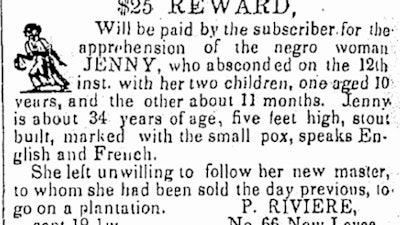In the Fairfield Community School District in Iowa, an eighth-grade social studies teacher quit his job after he couldn’t get the superintendent to clarify whether a new education law allowed teachers to say that slavery was wrong.
In Florida, the state board of education adopted social studies standards that ignited an uproar by calling for students to be taught about “how slaves developed skills which, in some instances, could be applied for their personal benefit.”
 The “Freedom on the Move
The “Freedom on the Move
Typically led by Republican-controlled legislatures seeking to reshape American education, such measures are ostensibly taken to ensure that American history is “taught accurately,” as Georgia Gov. Brian Kemp, a Republican, stated when he signed a bill known as HB 1084 into law.
As a former middle school teacher, journalist, and amateur historian, I wholeheartedly agree that accuracy is paramount when it comes to teaching school children about slavery and the extent to which systemic racism was or is endemic in American society.
This is why I’m so enamored with a database called “Freedom on the Move.”
The database — maintained at Cornell University in partnership with several universities, including Howard University — is a free and open archive of “runaway slave” ads placed in newspapers in the 1700s and 1800s. The collection currently consists of more than 32,000 ads.




















